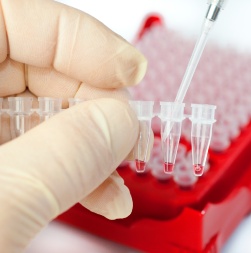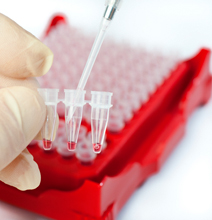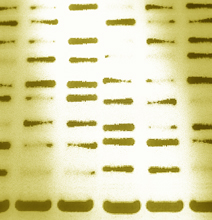How is it done?
The genetic test, in this case, is a multi-stage search for mutations, starting with a family member who has (or had) cancer.
For the person being tested, it is a straightforward procedure: a blood sample is collected at the hospital or clinic and sent for analysis in a specialized laboratory.
There are different types of genetic tests.
Most genetic tests look for changes in the normal sequence of the gene being investigated.

In fact, our DNA (genetic material) is like a long bead necklace, with the beads being molecules. These, aligned in unique sequences, form each different gene.
The genetic test reads (sequences) the gene (the piece of DNA) registering changes to compare to those mutations that scientists have already linked to hereditary cancer.
Other genetic tests do not look for changes in the DNA but in the proteins produced by the genes. These tests measure the protein length or functional activity, searching for abnormalities.
In colorectal cancer, the tests most commonly used looks for changes in the DNA of the genes associated with HNPCC, FAP, and MAP.
Contrary to the idea that tests are quick and conclusive, genetic tests are time-consuming and have limitations that you should Know about
.
When the results arrive, they go to your doctor at the risk clinic, who will interpret and discuss them with you.






